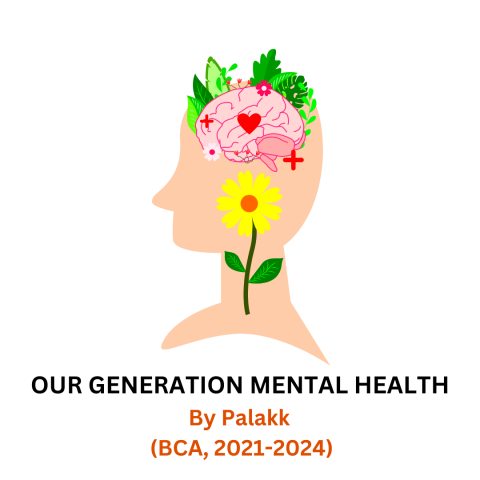
What does one understand by the term mental health? I am sure the old generation isn’t so friendly with such a thing because then it wasn’t a social issue to raise. So, to put it simply, mental health includes our emotional, psychological, and social well-being, which determines how one thinks, feels, and acts. Many external factors affect our emotions leading them to make us feel differently. Positive aspects bring out our well-being; in other words, good mental health is when you feel positive. But in today’s time, mental health is a serious topic.
According to research, Gen Zers are currently the most stressed-out generation. 90% of Gen Z members, according to the American Psychological Association, suffer from psychological or physical ailments as a result of stress. 70% of people experience anxiety and/or depression. Furthermore, 30% of the parents who responded to the study said their child was having negative effects on their emotional or mental health.
The Pandemic was one of the most extraordinary events in human history that Gen Z witnessed firsthand. Many people have expressed how the Pandemic has harmed them. Anxiety is the main mental health problem affecting Generation Z, and 78% of them are also dealing with depression. Many more problems are faced by this generation, namely ADHD, PTSD, OCD, Bipolar disorder, personality disorder, eating disorder, and BDD. As mentioned before, it has been a severe issue. The reason behind it is the societal pressure mixed with parents’ expectancy and many other crucial elements. Old generations might not be well aware of it, but many turn a blind eye to such issues. Because more than four in five Gen Zers believe their generation deals with more mental health concerns than earlier generations, many young people choose to talk to strangers over their parents. As a result, they are comfortable discussing mental health.
Gen Z developed during a difficult time. A significant portion of Gen Z—nearly 90%—doesn't believe that their generation has been prepared for success, which adds to their already considerable stress. Due to our fear of raising our stress levels, many of us believe we are not financially stable and are not prepared to enter the labor. 57% of already suffering teenagers are unprepared to face the world as they feel stuck in the loop of fear.
A long path is ahead, and each generation must cooperate to create a brighter future that benefits all. Opening up about hardships and obstacles while considering that you are not alone is necessary to begin such a future.
Bibliography
-
https://www.who.int/news-room/fact-sheets/detail/mental-health-strengthe...
-
https://healthmatch.io/blog/the-gen-z-mental-health-wave-what-is-causing...
By : Palakk (2021-24; 21030121125)



